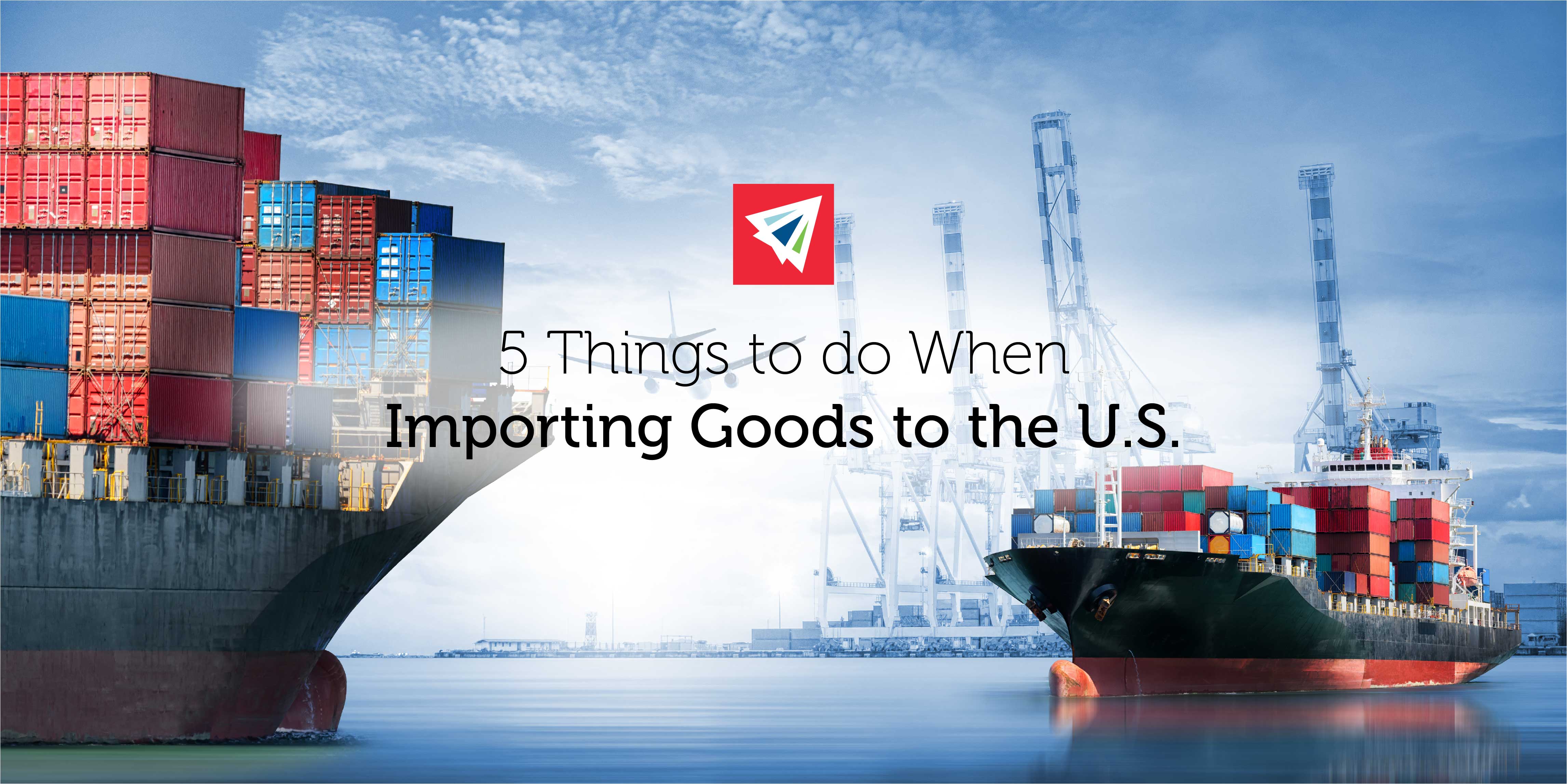Importing goods to the U.S. isn’t as cut and dry as just shepherding your new arrivals through customs. Goods brought into the U.S. can live in a state of import limbo if you don’t determine how the merchandise will enter. It’s important to know how the merchandise will flow — and if it can make it at all. As they say, the more you know, the better prepared you’ll be.
5 Most Important Things to Do When Importing Goods to the U.S.
It’s easy to overlook many of the important steps involved in importing. Compliance to legal authorities and rules is important, but doing your research and building relationships with the right people is equally important. Check this list to see if you have done the following actions when importing goods to the U.S.
Research Import Rejection Laws and Trader Barriers
No matter how import-friendly the U.S. tends to be, it does abide by a number of safety and quality controls — many of which are much stricter than other countries. Review U.S. trade barriers to ensure you can import the goods into the U.S.
But it isn’t just U.S. regulations you need to worry about; you may also run into issues from the export country. Certain nations will restrict or ban the export of goods based on various reasons. If something is religious in nature, for example, it may not be eligible for exportation. The same can be said for rare or protected goods.
To determine whether restrictions apply, check with the Office of International Trade. If goods are agricultural in nature, you can learn more from the Food and Safety Inspection Service.
Build a Network of Relationships in the Export Country
It’s always good business to meet with manufacturers, suppliers, and distributors before selling their goods, but even more so when these goods are coming from foreign soil. Arranging a meeting provides the opportunity to determine whether the party in question has export experience or any references you can contact.
Hire An Expert
Navigating the laws and regulations associated with exported goods can be difficult. A NVOCC and Customs broker can help with all the documentation necessary to get these goods overseas. They can also help calculate taxes and duty fees.
Obtain a Customs Bond, Necessary License, and Check Permit Requirements
Importing goods to the U.S. may come with very specific license and permit requirements depending on the commodity. A list of these goods can be found at the Office of International Trade, organized by product type (i.e. agricultural, automobile, food and beverage, pharmaceutical, etc.).
If you are importing goods to the U.S., it is imperative that you obtain a customs bond, which comes in two forms: Single-Entry and Continuous. Do your research on both bonds to figure out which one will be the most cost-effective solution for your company. If you import on a frequent basis, continuous will be your best bet. However, if you have infrequent, ad hoc importing projects, a single-entry bond should be fine for your company.
If the product is listed, chances are you’ll need to obtain specific licenses and permits to import the merchandise to the United States. These licenses and permits may also come with additional paperwork, so make sure to double-check what must accompany transit.
Get Assistance and Training
Besides the information we’ve provided here, it’s always wise to take part in training and seminars. The federal government has a number of resources available to provide assistance and advice on international trading. Contact the following agencies and organizations for additional information:
- Small Business Development Centers
- U.S. Customs and Border Protection Contacts
- International Trade Administration Services
If you need more information on importing goods, you can also contact InterlogUSA. Our team has extensive experience in global shipping and can field your questions or connect you with the necessary agencies to answer your import/export concerns.

7 thoughts on “5 Things to Do When Importing Goods to the U.S.”